After losing Vauxhall jobs, how can Luton bounce back?
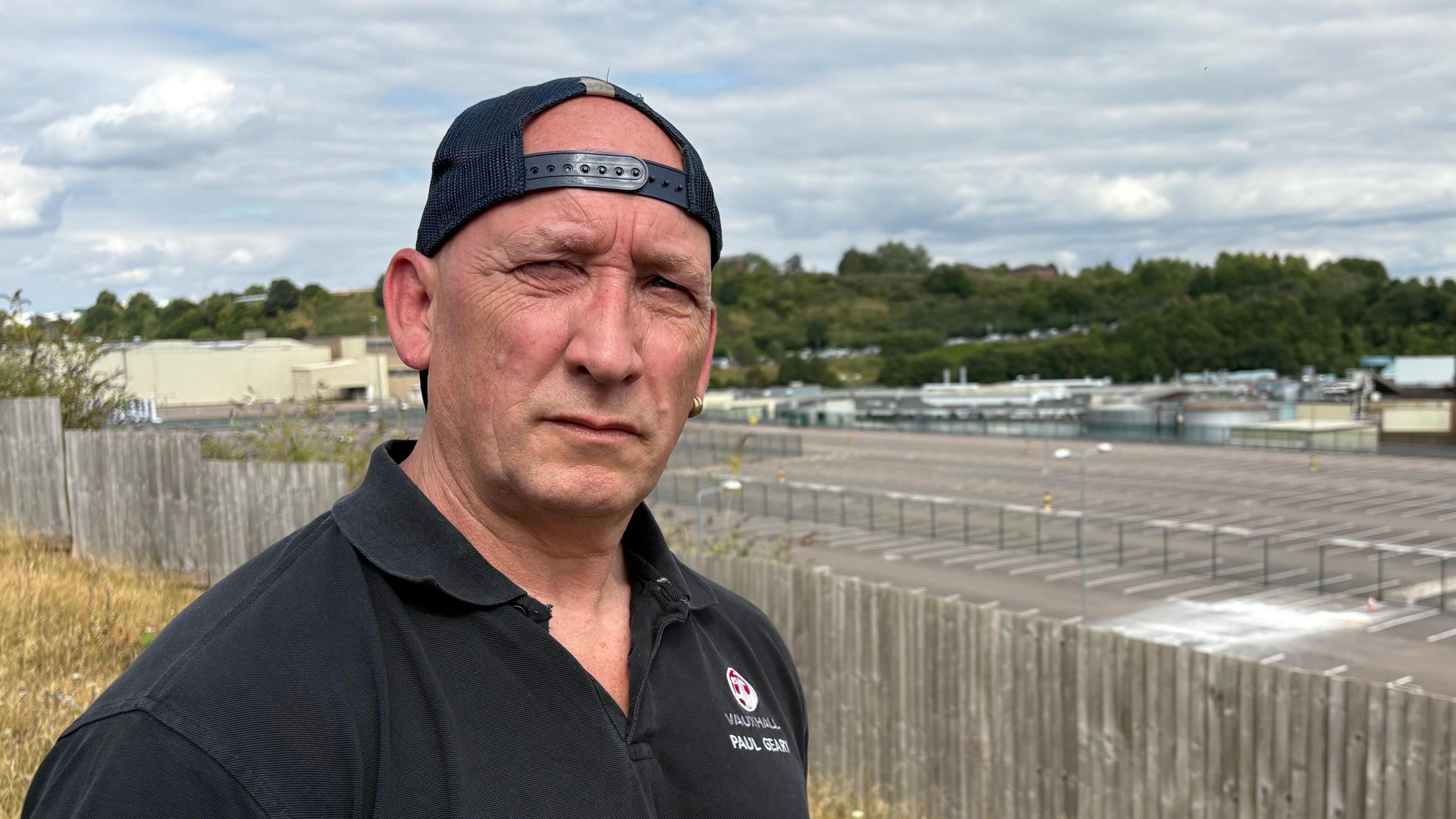
Paul Geary started working at Luton's Vauxhall factory in 1991
- Published
Closing Luton's Vauxhall factory in March lost the town about 1,100 jobs and £300m a year from the local economy. After the economic shock of losing an employer that has been based there for 120 years, how is Luton coping in the short term?
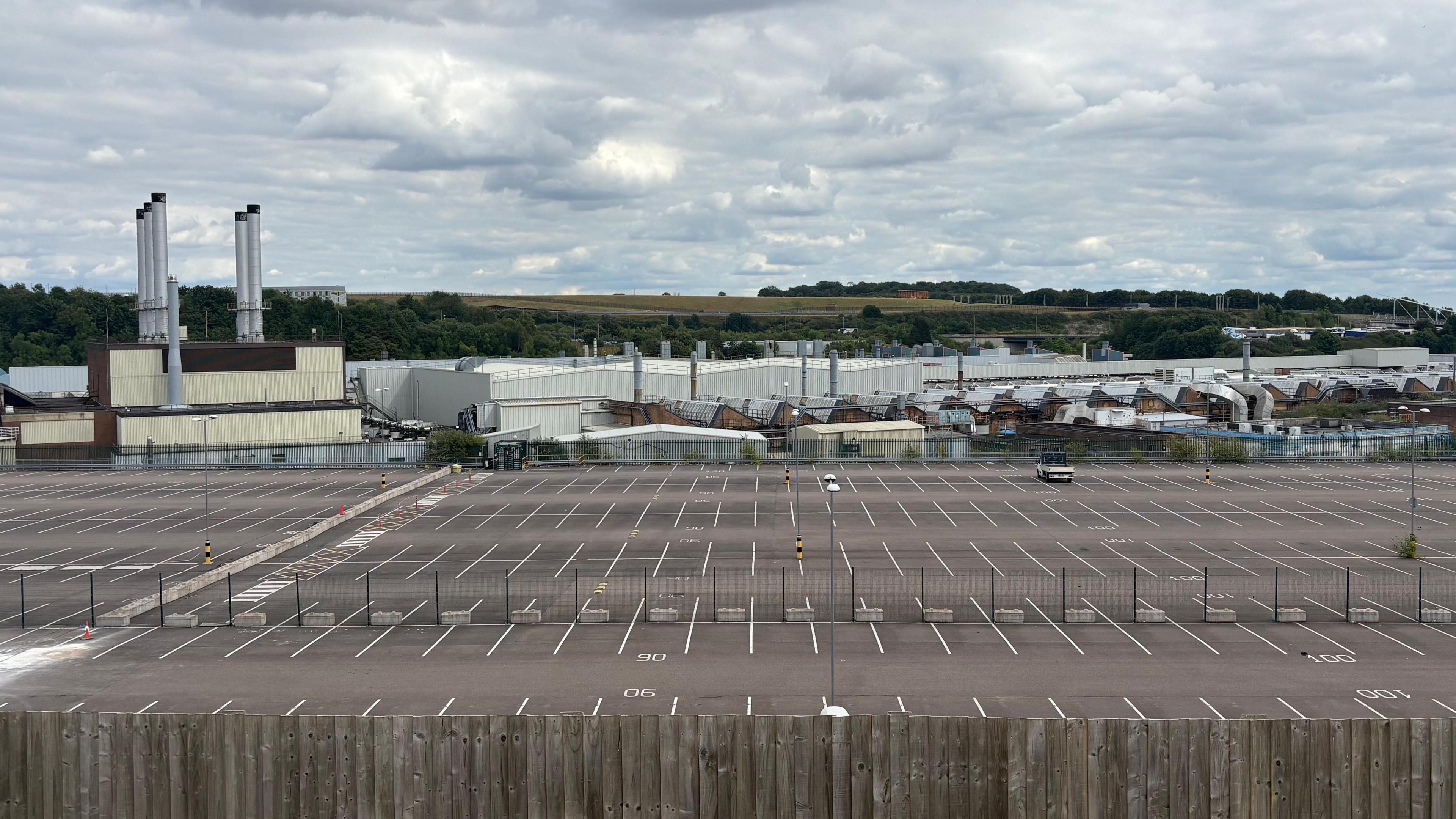
The Vauxhall factory made hundreds of Vivaro vans each day
Paul Geary says looking out over the near-deserted former Vauxhall factory is "distressing".
"It's how quiet it is. This was running 24/7 - the silence is deafening."
Mr Geary, 59, started working there in 1991 - the third generation in his family to do so. His daughter, Cassandra, joined him a decade ago.
The union rep has been kept on to help colleagues with paperwork and advice, but he says he is likely to take early retirement when that comes to an end in July. Meanwhile, Cassandra, 31, has found a part time job.
He worries about what the closure means for the town's future.
"I think it's tragic for Luton. Working class, manufacturing town - that's what it's always traditionally been - whether it's motor cars, whether it's hats, whether it's clothing - that's all gone.
"I personally think unemployment will rise.
"The town will become a ghost town."
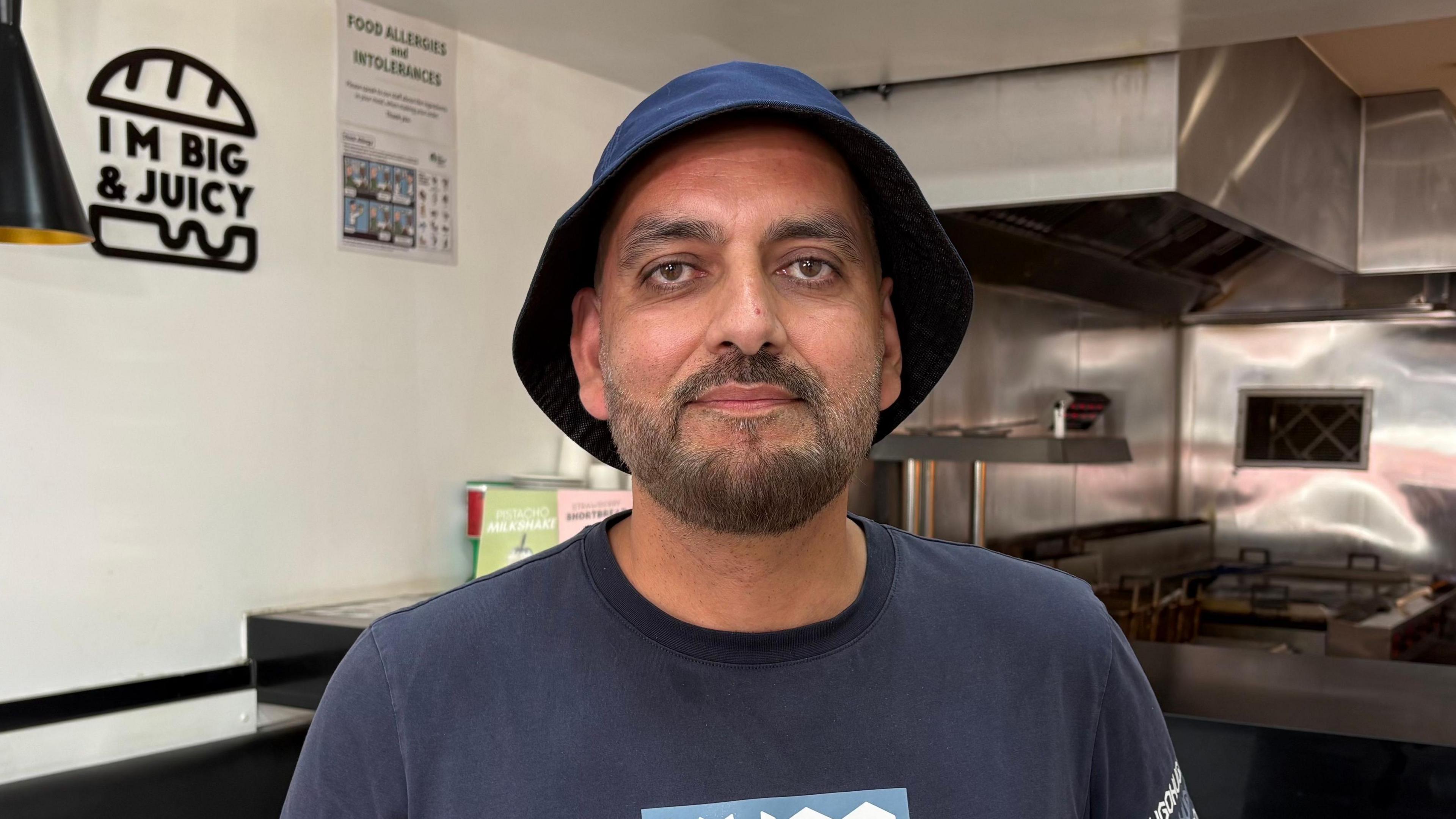
Nasser Hussain said Vauxhall's closure affected trade at Brim Burgers
A few hundred metres from the factory is Brim Burgers, which - while not part of Vauxhall's traditional supply chain - is nonetheless feeling the impact of the plant's closure.
For three years, it has served food from its outlet on Kimpton Road.
Its owner estimates takings are down by 10-15% since the plant closed.
Nasser Hussain, 48, said he considered cutting staff.
"Any closure of a place that employed over 1,000 - the natural effect is obviously financial initially.
"These guys were many of our customers."
Beyond the financial hit, Mr Hussain said his team heard how Vauxhall staff "felt about being made redundant and how it's going to impact their future".
Even before the factory closed, Luton had seen a sharp rise in people claiming unemployment benefits.
There are plans to redevelop the site, expand London Luton Airport and build a Universal Theme park up the A6 near Bedford.
After the factory's owner Stellantis announced the closure, Luton Borough Council set up a Luton Vauxhall Taskforce.
Several hundred employees have attended jobs fairs and skills workshops organised by the taskforce.
Javeria Hussain, councillor for employability and skills, said their "main commitment and priority is helping those workers that lost their jobs".

Javeria Hussain said the financial loss to the local economy was "huge"
Losing £300m from the local economy was a "massive hit", she added.
"That is a huge sum of money, particularly for a town like Luton - we are a small town."
She said the council was also putting together a "comprehensive proposal" for "economic and investment support" from the government.
Property company Goodman announced in April, external it had bought the former Vauxhall factory.
It said it would spend £400m on the site and turn it into a "high-quality commercial and industrial park" that would attract businesses working in "advanced logistics, manufacturing, engineering and digital infrastructure".
The firm estimated the regeneration of the site could create 1,700 jobs. Building work there could begin in 2027.

Redeveloping the site of a former power station into a football stadium, shops and homes, could create 1,000 permanent jobs
Elsewhere, Luton Town Football Club was due to begin building a new 25,000-capacity stadium on the edge of the town centre this summer.
The council leader said the project was "about much more than football" and would "bring jobs, homes and vitality".
A new terminal building and taxiways will also be built at London Luton Airport, which would see its passenger cap raised from 18 million a year to 32 million by 2043.
Luton Rising, the council-owned company that owns the airport, has said the growth could support , externalup to 11,000 new jobs and add £1.5bn of economic activity a year. The transport secretary approved the plans in April.
But some in the town also want what they call "bottom-up" regeneration.
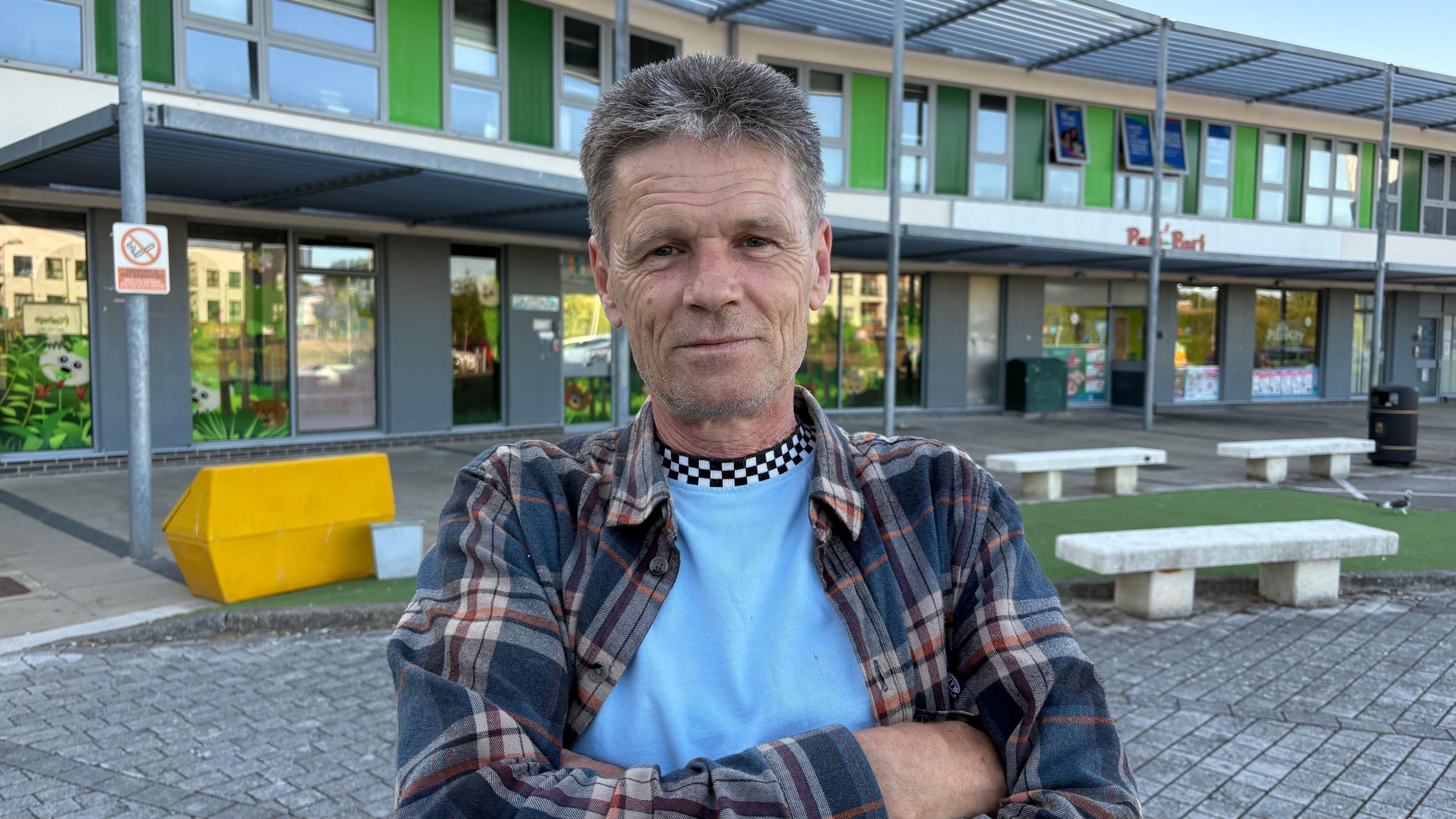
Glenn Jenkins helped campaign to have Futures House built on Luton's Marsh Farm estate
Glenn Jenkins, 61, is a community activist based in Marsh Farm estate, on the northern edge of Luton, at the other end of town from the Vauxhall site.
In the late 1990s he helped campaign for a derelict Coulter Electronics factory on the estate to be turned into Futures House, a community hub that includes public services alongside business premises.
He said since it opened in 2011 as part of a £48m regeneration of the area it had helped create more than 100 local jobs, including in a day care centre for young adults with learning disabilities, a nursery and takeaway.
"That's money that wasn't here before, and there's jobs that wasn't here before," he said.
He believed that by "making better use of your local spending to create jobs on a local level", Luton would be "much less then vulnerable" to job losses prompted by "multinational maths".
"When you've created them yourself locally and they're based on a local market... that's much more stable."
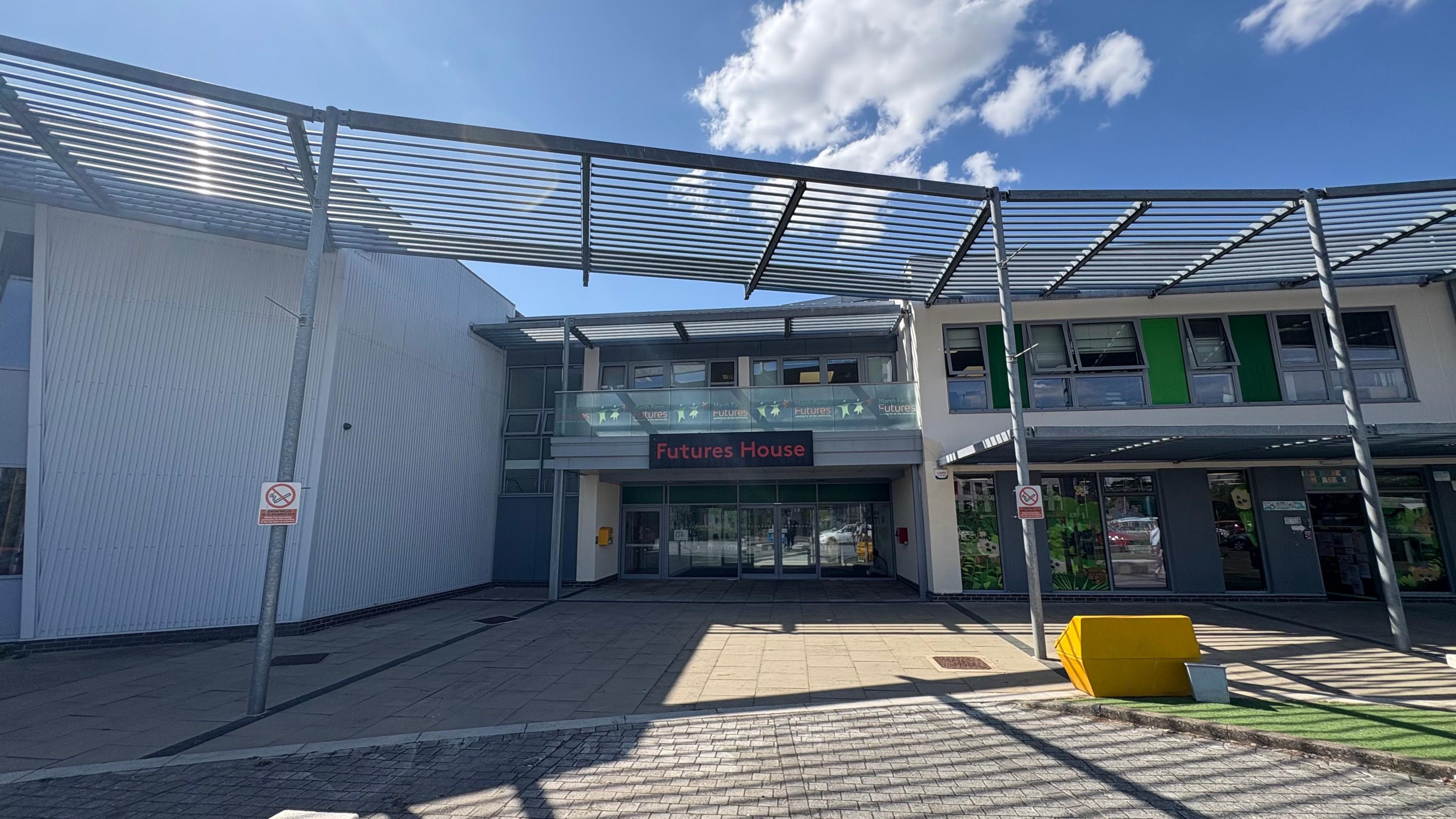
Futures House blends community facilities and commercial spaces
Mr Jenkins worried Luton had "turned from a town of makers" into "a town packing stuff that's been made far away".
A "zero hour contract culture" meant some jobs were less secure and less lucrative, he said.
"Now the packing - not making - is not only much less valuable in terms of what you're doing, it's much less valuable in what you're getting paid."
Sean Scully, managing director of Ryebridge Construction, responded: "I get the point but I actually disagree."
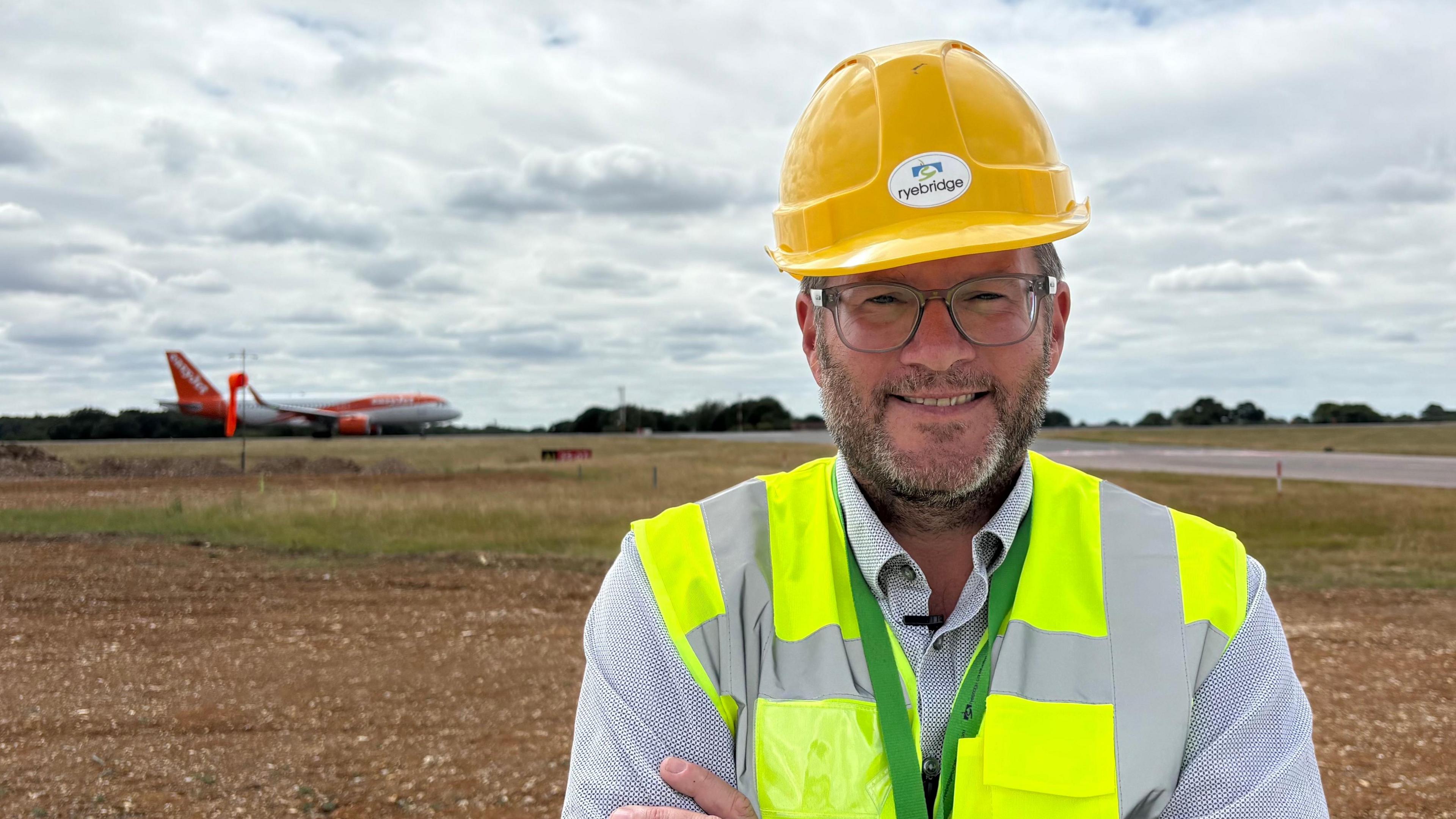
Sean Scully said Ryebridge's workforce included young people working on apprenticeships and higher apprenticeships
Ryebridge, a local firm formed 16 years ago, was building a new 375-metre taxiway at Luton Airport.
It hoped to win more work as the airport grew, which Mr Scully said was a "once-in-a-lifetime opportunity" for the town.
He said Ryebridge's workforce included "young people going from level two... to level five or six higher apprenticeships".
"That isn't packing stuff. That's site engineers, site foremen, site managers, supervisors," he said.
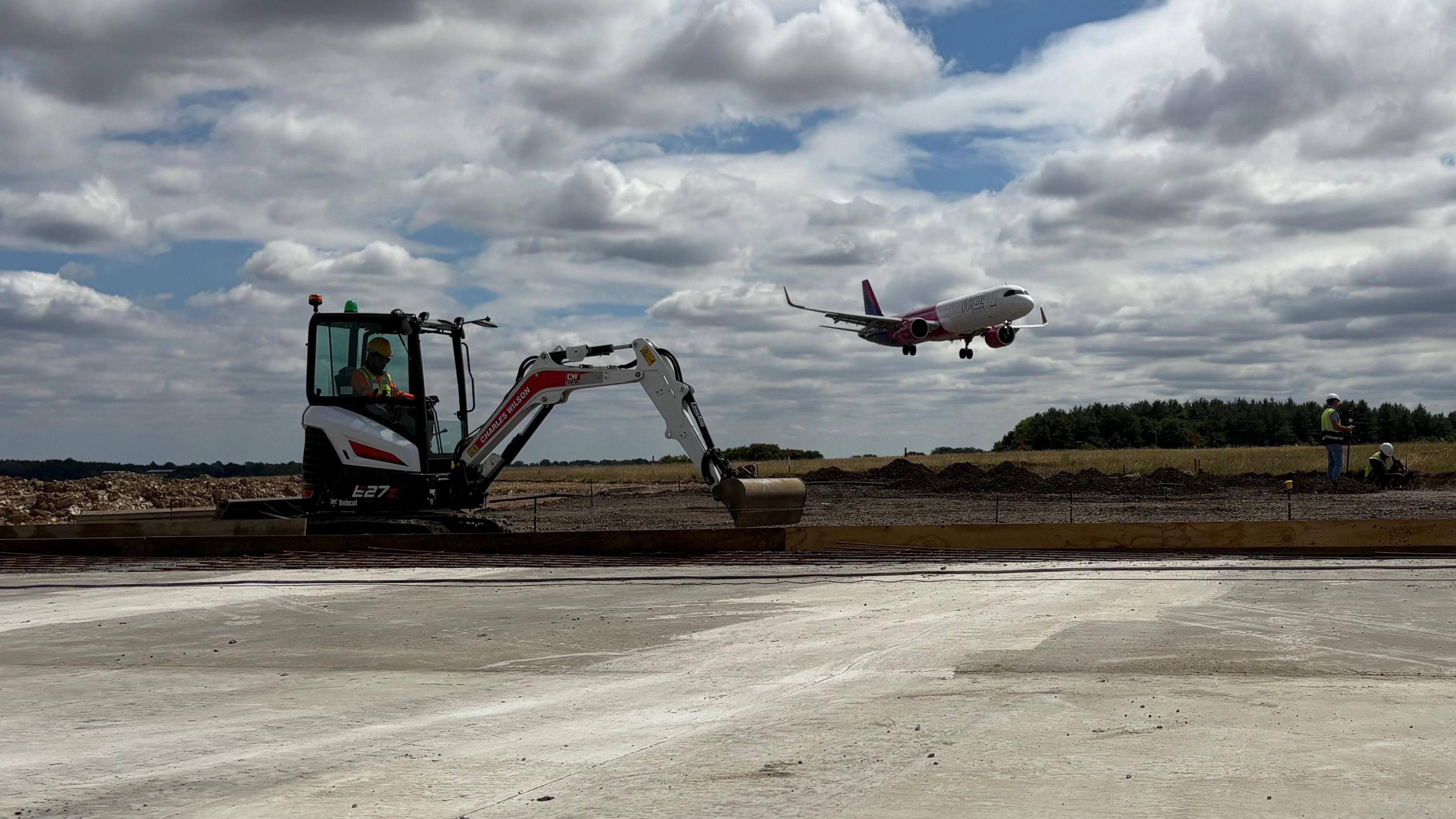
Earlier this year the government approved a large expansion of Luton Airport
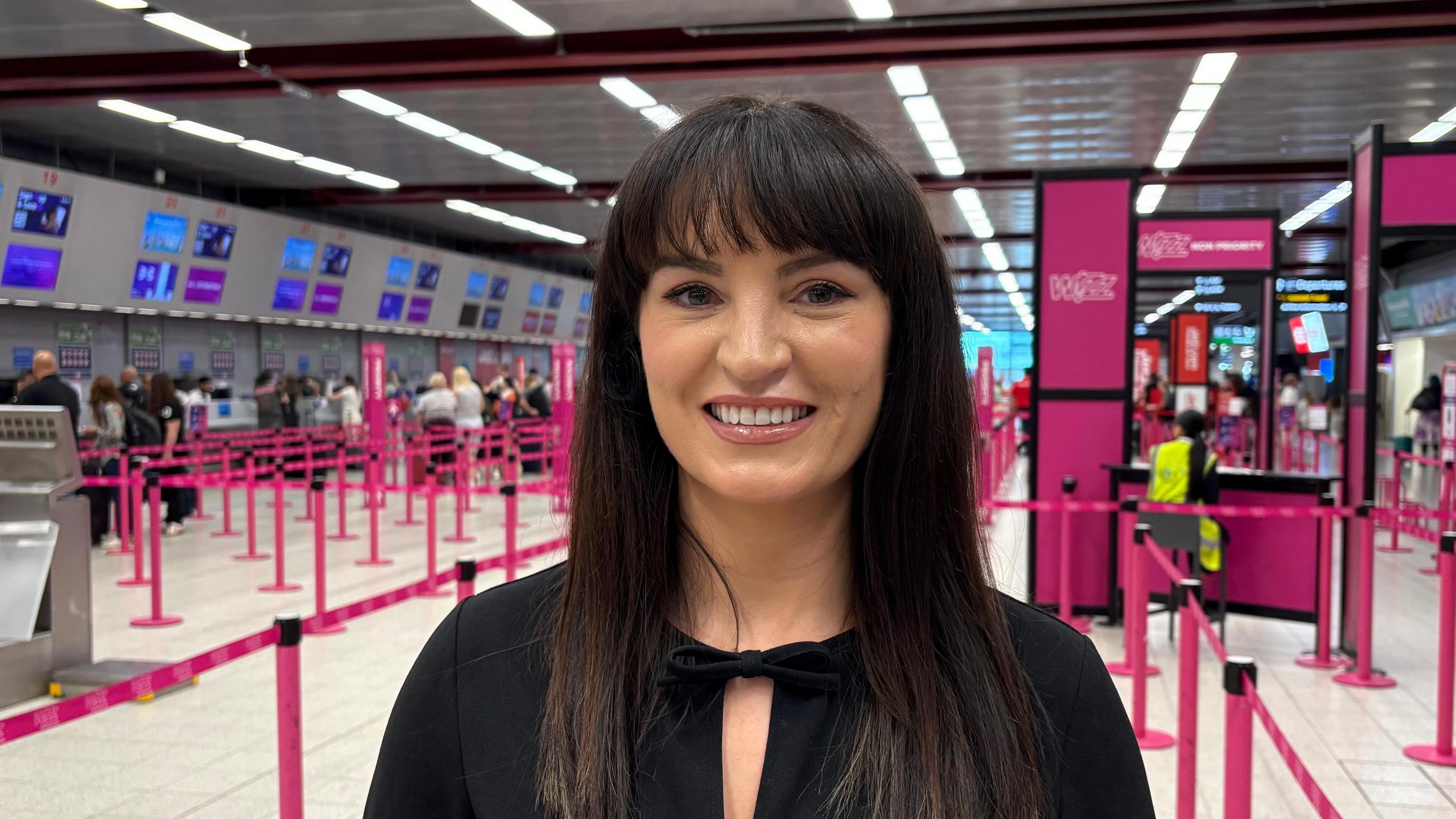
Wizz Air's UK managing director Yvonne Moynihan said the growth already planned at the airport was "significant and really important"
Wizz Air, which currently has 12 planes based at Luton, said it hoped to bring 14 million more passengers through the airport over the next five years.
Yvonne Moynihan, its UK managing director, said new roles could include "skilled worker jobs" like pilots, flight attendants, aircraft engineers and mechanics".
"That type of growth is significant and really important for the local community. So we are bringing jobs, growth and opportunity," she said.
The question for Luton is whether that growth arrives in time to sooth pains elsewhere.
Politics East is on BBC Two on Sunday at 10:00 BST, and available after broadcast on the BBC iPlayer.
Get in touch
Do you have a story suggestion for Beds, Herts & Bucks?
Follow Beds, Herts and Bucks news on BBC Sounds, Facebook, external, Instagram, external and X, external.
- Published26 November 2024
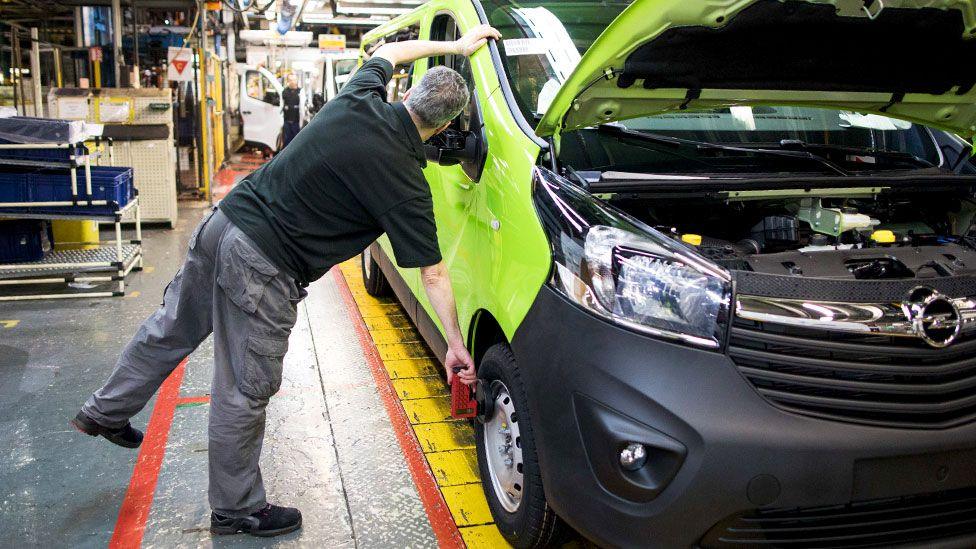
- Published7 February

